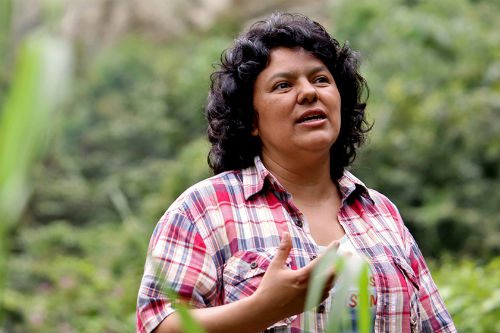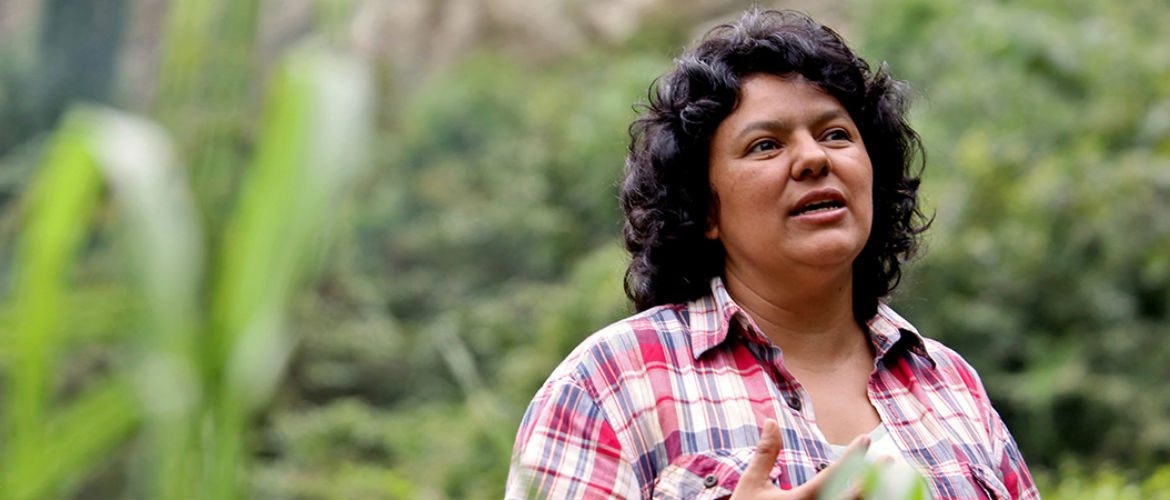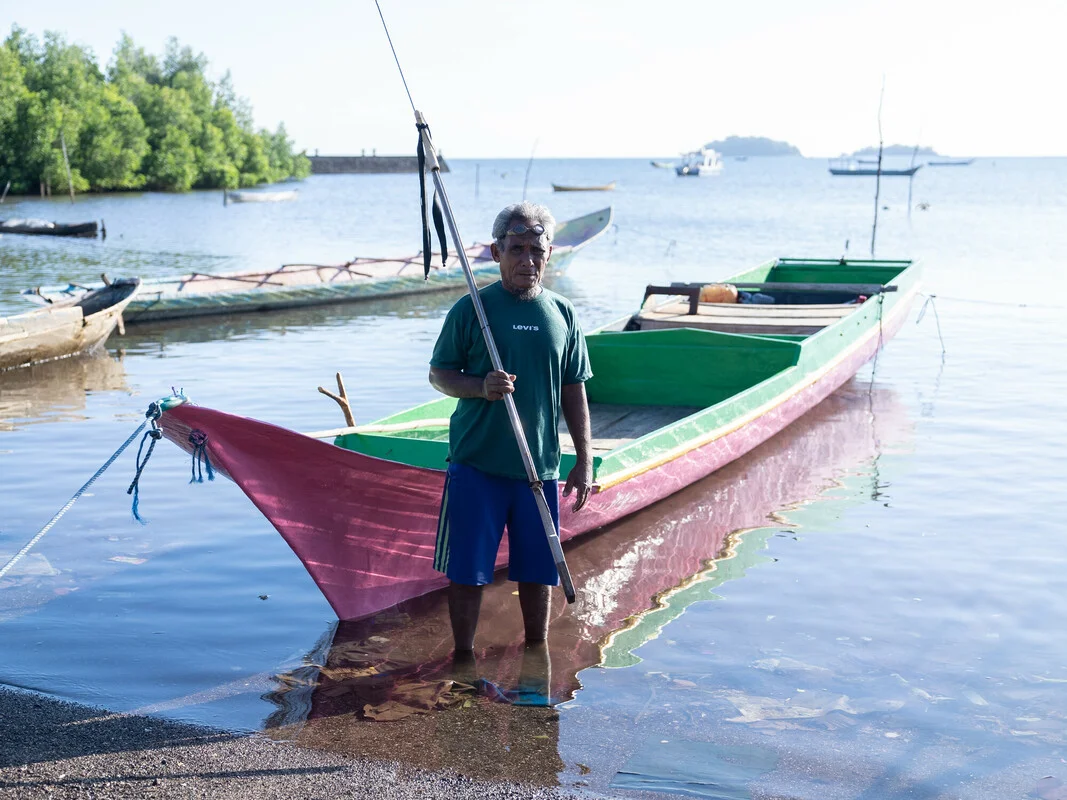By Sustainable Food Advocacy Coordinator, Shona Hawkes.
The recent assassinations of Berta Cáceres and Nelson García highlight the extreme violence and intimidation that many indigenous land rights activists face every day.
It also underscores the urgent need for investors in the Agua Zarca hydropower project in Honduras to do everything in their power to stop this intimidation and violence against affected communities who are seeking justice in defence of their human rights.
The Honduran state must guarantee this under international law.
[youtube https://www.youtube.com/watch?v=oTpMppCwomQ]
Last month, Honduran indigenous land rights defender, Berta Cáceres (pictured), was assassinated in the middle of the night. Her killers have yet to be identified, but her assassination comes after threats and intimidation against her work in the Lenca communities’ campaign against the construction of the Agua Zarca hydroelectric power project.
The project is taking place without the prior consultation of all local Indigenous people required by international law, and threatens a river of great spiritual importance to the Lenca community.
Berta provided incredible strength to her family, her community, and to Lenca communities’ movement for justice. In 2015, she was awarded the international Goldman Environmental Prize, one of the highest honours for environmental activism.
Berta is not the first activist to be killed in Honduras, and tragically, she was not the last.
The situation for activists has deteriorated further
One month after Berta’s murder, her family members and colleagues remain under threat. Just two weeks after her assassination, Nelson García, another indigenous leader in her organisation, was also murdered.
Others, like Mexican activist, Gustavo Castro — who witnessed Berta’s murder and was himself shot twice during the attack — fear for their own lives.
There needs to be an end to the impunity with which this violence and intimidation is taking place. The perpetrators, and those that support them, must be held to account.
Vilification, beatings, sabotage, death threats
I’ve worked with land rights defenders who have been beaten or arbitrarily detained, their homes and offices repeatedly broken into. Many never feel safe.
One friend of mine found a full-page advertisement in a local newspaper personally vilifying him.
After receiving death threats, another friend spent weeks travelling from house to house; spending one or a maximum of two nights in any one location before moving on.
For others, motorbikes have been sabotaged; they have been threatened with guns and knives.
The constant stress of legal threats, violence, and ongoing surveillance is psychologically exhausting — as is the fear for the safety of activists’ parents, their partners, siblings and children.
Human rights are impacted on many levels
‘Land grabbing’ doesn’t just impact communities’ land and water rights; it impacts a much broader range of human rights, including freedom of speech.
Across the world we’re also seeing the criminalisation of protest; people are arrested and arbitrarily detained for peacefully exercising their civil and political rights such as freedom of speech.
Community protest is often used as a justification for brutalising land rights defenders, and activists are targeted as payback for trying to protect their land, water and community.
The struggle to restore these rights can take years, or even decades.
Ending the indifference at home and abroad
Particularly shocking — after the murders of Berta and Nelson — is the continuing indifference displayed by many international investors and companies underpinning the Agua Zarca project.
Closer to home, Australia’s big four banks are still trying to shift responsibility for land grabs and associated community impacts onto the actions of their clients.
And this continues even after Australia’s big banks and local investors become aware of violence and intimidation against human rights defenders in the regions they’re investing or otherwise doing business in.
Because of this, our big banks are increasingly out-of-step with the views of everyday Australians and evolving human rights law that, at a minimum, requires companies to “do no harm”.
In February 2016, Oxfam released the Still banking on land grabs report. It details how our big banks — despite claims to the contrary — have done little to support communities impacted by land grabs.
The report is riddled with quotes from local activists describing threats, violence and incursions on their human rights.
Across the world, people are taking action in solidarity with the human rights defenders in Honduras. This includes a call for all companies linked to the Agua Zarca project to fully and permanently withdraw their funding, and for there to be independent investigations into Berta and Nelson’s murders.
Since Berta’s death, two development banks — FMO in the Netherlands, and FinnFund in Finland — have suspended funding to Agua Zarca. But they haven’t pulled their support for the project completely.




